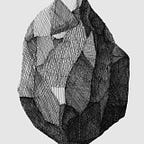Resentment
The chorus to Andrew Jackson Jihad’s “Kokopelli Face Tattoo” could be the counter-anthem for contemporary political commentary. The lyrics read:
“Hey dude I hate everything you do/but I’m trying really hard to not hate you ‘cause/hating you won’t make you suck any less”
But what really comes to mind is the final rendition of the chorus, where the final line is repeated three times. Yet, the second time the line is repeated with a subtle difference, instead saying “hating you won’t make me suck any less”.
We live in an age of political resentment. We’re hyper polarized to ridiculous extremes, and this leads us to detest our opponents. Unlike many political commentators, I don’t think that this is anything new. Rather, I think that this has always been the case.
Beyond hyper polarization, which has been written about ad infinitum, I’d like to explore an issue that has likely existed from time immemorial which is interrelated with our political resentment, but has less to do with rejecting polarization, and more to do with what I think is a material production of that resentment.
In the first treatise to his Genealogy of Morals the German philosopher Friedrich Nietzsche writes the following:
How much respect for his enemies has a noble man! — and such respect is already a bridge to love… For he demands his enemy as his distinction, indeed he tolerates no other enemy than the one in whom there is nothing to despise and very much to honor!
This noble man is then contrasted with the man of resentment or ressentiment:
Now conversely image ‘the enemy’ as the man of ressentiment conceives of him — and precisely here is his deed, his creation: he has conceived of ‘the evil enemy,’ ‘the evil one,’ and this in fact as the basic concept out of which he then thinks up a ‘good one’ as an afterimage and counterpart — himself!
The noble person chooses as their enemy one whom they respect. In contrast, the one who is resentful chooses as an enemy one whom they detest, or consider a bumbling buffoon. It is easy, then to tear down the enemy whom one believes is an idiot. It is much more difficult to engage with a position that one respects, despite disagreement.
What this should not be taken as is a call that one must respect all that one disagrees with. It is, rather, a call to choose enemies whom one respects. I think that, hidden in this message is a call to charity. When I teach, I find it integral to instill in students the concept of charity. When picking an opponent, do not pick an opponent who you feel is ridiculous, pick one who you feel is stronger than you. This will lead you to do better work. When presenting your opposition, in your writing, present the strongest case of that opposition — try to convince yourself of their position, before tearing it down.
None of this is to say that we must respect a buffoon. It is rather to say that we shouldn’t spend so much time on the buffoon. Interrogating a buffoon on the level of buffoonery doesn’t lead to strong political movements, but places us all on the level of the buffoon. This leads to another passage from Nietzsche, from his earlier text The Joyful Science. Here, in aphorism 276, Nietzsche introduces the Amor Fati or the love of fate, stating:
I do not want to wage war against what is ugly. I do not want to accuse; I do not even want to accuse those who accuse. Looking away shall be my only negation.
Here, Nietzsche suggests that we look away from the buffoon to focus on what makes us stronger. As the lyric from AJJ states my hate for the buffoon doesn’t do good for the buffoon, and it doesn’t do any good for me. Waging war against what is ugly — the buffoon — does little else than turn me into a hateful buffoon.
When choosing those we go into battle against, choose an opponent who is worthy of our respect. Doing so which put us in an arguably stronger position.
